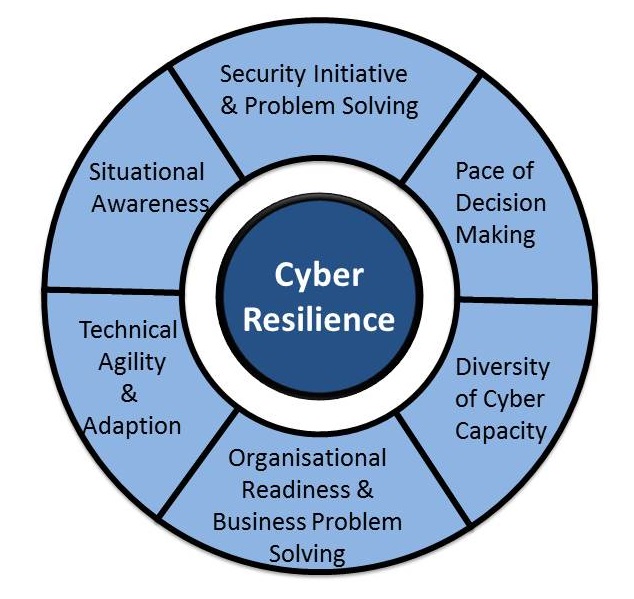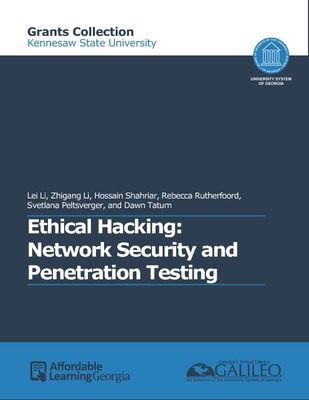In today's digital age, cybersecurity is crucial for accounting firms handling sensitive financial data. Ethical hacking plays a vital role in identifying vulnerabilities before malicious actors can exploit them. This proactive approach helps protect client information and maintain trust in the financial industry.
Ethical hacking in accounting involves authorized professionals testing systems to enhance security. While it offers benefits like improved defenses and regulatory compliance, it also raises ethical concerns. Balancing security needs with privacy rights and adhering to legal boundaries are key challenges in this field.
Ethical Hacking in Accounting
Definition and Role
- Ethical hacking, also known as penetration testing or white hat hacking, involves authorized professionals using hacking techniques to identify vulnerabilities in an organization's computer systems, networks, and applications
- The primary goal of ethical hacking in accounting is to proactively identify and address security weaknesses before malicious actors can exploit them, thus enhancing the overall cybersecurity posture of the organization
- Ethical hackers in the accounting industry focus on testing the security of financial systems, databases, and applications that handle sensitive financial data (client information, transaction records, financial statements)
- Ethical hacking engagements in accounting firms typically follow a structured methodology, which includes planning, reconnaissance, vulnerability assessment, exploitation, post-exploitation, and reporting phases
- The findings and recommendations from ethical hacking assessments help accounting organizations prioritize and implement necessary security controls, patch vulnerabilities, and improve their incident response capabilities
Benefits and Impact
- Ethical hacking helps accounting firms identify and mitigate potential security risks before they can be exploited by malicious actors (cybercriminals, hackers)
- By proactively identifying vulnerabilities, ethical hacking enables accounting organizations to strengthen their cybersecurity defenses and protect sensitive financial data from unauthorized access, theft, or manipulation
- Ethical hacking assessments provide valuable insights into the effectiveness of existing security controls and help accounting firms prioritize investments in cybersecurity technologies and processes
- Regular ethical hacking engagements demonstrate an accounting firm's commitment to cybersecurity and can help build trust with clients, regulators, and other stakeholders
- Ethical hacking can also help accounting firms comply with industry-specific cybersecurity standards and regulations (AICPA's Cybersecurity Risk Management Framework, IRS's Publication 4557)
Ethical Implications of Hacking

Ethical Guidelines and Principles
- While ethical hacking is conducted with permission and for the benefit of the organization, it still involves using techniques that, if misused, could cause harm to the confidentiality, integrity, and availability of financial data
- Ethical hackers in the accounting industry must adhere to strict ethical guidelines, such as maintaining confidentiality of sensitive information discovered during the assessment, only accessing systems within the agreed-upon scope, and reporting all findings to the appropriate stakeholders
- The use of hacking techniques in accounting system assessments should be proportional to the risks involved and should not cause undue disruption to the organization's operations or compromise the privacy of individuals
- Ethical hackers must obtain explicit permission from the accounting organization before conducting any testing and should have a clear understanding of the legal implications and potential consequences of their actions
- Accounting firms engaging ethical hackers should establish clear policies and procedures governing the conduct of the assessment, including guidelines for handling and protecting sensitive data, managing conflicts of interest, and ensuring transparency in reporting
Balancing Security and Privacy
- Ethical hacking in accounting firms involves accessing and testing systems that contain sensitive financial data and personal information, raising concerns about privacy and data protection
- Ethical hackers must strike a balance between thoroughly testing the security of accounting systems and respecting the privacy rights of individuals whose data may be accessed during the assessment
- Accounting firms should implement strict data handling and protection policies to ensure that any sensitive information accessed during ethical hacking engagements is kept confidential and secure
- Ethical hackers should only collect and retain the minimum amount of data necessary to complete the assessment and should securely dispose of any sensitive information once it is no longer needed
- Transparent communication with clients and stakeholders about the nature and scope of ethical hacking activities can help build trust and address concerns about privacy and data security
Boundaries for Ethical Hacking

Legal and Regulatory Compliance
- Ethical hacking in the accounting industry must comply with relevant laws and regulations, such as the Computer Fraud and Abuse Act (CFAA), which prohibits unauthorized access to computer systems
- Accounting professionals involved in ethical hacking should be aware of their obligations under professional codes of conduct, such as the AICPA Code of Professional Conduct, which emphasizes the importance of maintaining confidentiality, integrity, and objectivity
- Ethical hackers should have a clear understanding of the scope and limitations of their engagement, as defined in the contract or agreement with the accounting organization, and should not exceed these boundaries without explicit permission
- The use of hacking tools and techniques should be limited to those that are necessary for the specific objectives of the assessment and should not be used for any unauthorized or illegal purposes
- Failure to comply with legal and regulatory requirements can result in severe consequences for both the ethical hacker and the accounting firm (fines, legal action, reputational damage)
Professional Qualifications and Standards
- Accounting firms should ensure that ethical hackers have appropriate qualifications, certifications, and experience, such as the Certified Ethical Hacker (CEH) or Offensive Security Certified Professional (OSCP), to demonstrate their competence and commitment to ethical standards
- Ethical hackers should continuously update their skills and knowledge to keep pace with the evolving threat landscape and new hacking techniques
- Accounting firms should establish clear policies and guidelines for the selection, engagement, and oversight of ethical hackers to ensure they meet the necessary professional standards and ethical requirements
- Ethical hackers should maintain detailed documentation of their activities, findings, and recommendations to ensure transparency and accountability
- Regular communication and collaboration between ethical hackers and the accounting firm's cybersecurity team can help ensure that the assessment aligns with the organization's overall cybersecurity strategy and risk management objectives
Cybersecurity in Accounting Firms
Importance and Risks
- Accounting firms handle vast amounts of sensitive financial data, including client information, transaction records, and confidential business information, making them attractive targets for cybercriminals
- Cyber attacks on accounting firms can result in significant financial losses, reputational damage, legal liabilities, and loss of client trust, highlighting the need for robust cybersecurity measures
- Common cyber threats faced by accounting firms include phishing attacks, malware infections, ransomware, data breaches, and insider threats
- The increasing adoption of cloud-based accounting systems, remote work arrangements, and mobile devices has expanded the attack surface for cybercriminals, making it more challenging for accounting firms to secure their data and systems
- Failure to implement adequate cybersecurity measures can result in regulatory penalties, legal action, and loss of competitive advantage for accounting firms
Best Practices and Strategies
- Implementing strong access controls, such as multi-factor authentication, role-based access, and regular password updates, can help prevent unauthorized access to sensitive financial systems and data
- Encrypting sensitive data, both at rest and in transit, is crucial to maintain the confidentiality and integrity of financial information and protect it from interception or tampering
- Regular security awareness training for accounting professionals can help foster a culture of cybersecurity, educate employees about common threats (phishing, social engineering), and promote best practices for safeguarding sensitive data
- Conducting regular vulnerability assessments, penetration testing, and security audits can help identify and address weaknesses in the accounting firm's cybersecurity posture before they can be exploited by malicious actors
- Developing and testing incident response plans can help accounting firms quickly detect, contain, and recover from cyber incidents, minimizing the impact on operations and client trust
- Implementing secure backup and disaster recovery solutions can help accounting firms protect critical data and systems from ransomware attacks and other disruptions
- Collaborating with cybersecurity experts, such as managed security service providers (MSSPs) or cybersecurity consultants, can help accounting firms access specialized expertise and resources to enhance their cybersecurity capabilities
- Compliance with industry-specific cybersecurity standards and regulations, such as the AICPA's Cybersecurity Risk Management Framework or the IRS's Publication 4557 (Safeguarding Taxpayer Data), demonstrates an accounting firm's commitment to protecting sensitive financial data and maintaining client confidence